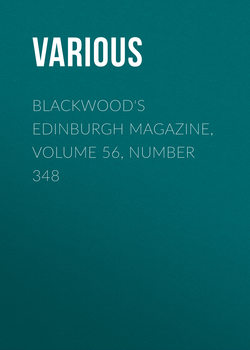Читать книгу Blackwood's Edinburgh Magazine, Volume 56, Number 348 - Various - Страница 19
THE GREAT DROUGHT
Chapter IV
ОглавлениеIn that time of trouble and of unexampled events, the mind received impressions in a different manner from what it had ever done before. The stern gloom that hung over the future, the hazard upon which life was suspended, the close contact with universal death, and the desperate struggle by which it was staved off, gave to all things a new character; and the scene of the last chapter was but one of the series of deadly and dreadful excitements which were now the habit of every day. The solemn frame of mind which it induced in Ellen, was of a piece with the solemn nature of their existence; and she could talk of it with her husband at any time, and not disturb the natural bent which their conversation took. They searched the immediate neighbourhood for the habitation of the unhappy mother and her family; and the marks of her footsteps on the dust of the soil enabled them to trace her to Hope, a village in the plain, two miles, or rather more, from the Peak. She and her husband had used the church for their habitation, and it seemed had employed the same kind of precaution as Paulett to defend it and conceal that it was their dwelling. One entrance only was left, and the other apertures blocked up; but all care was useless now, for death had set them free from pain and fear. On a bed beside the altar lay the body of a man, over which as spread a cloak of fur and velvet, which in the lifetime of the world would have been most precious. His eyes were decently closed, the curtains of the bed drawn round him, and the pillow which supported his head was marked with the pressure of another head, and with moisture which could have been only the tears of his wife. The floor of the church was in confusion, like the dwelling of one too much distracted with trouble to attend to what did not relate to it; but there was corn which had served for food, and fuel heaped on the stone which had been a hearth—there was the drawing of a lovely woman and of a beautiful place: but these were cast into a corner, probably by the irritable hand of despair. On a table stood empty cups, which had long, perhaps, been dry—the glass of one had been shivered, and the fragments lay on the floor; there were also a few books, neglected and covered with dust. In the churchyard were the marks of three recent graves—one of them had a stone at its head, on which was carved with care the name of Alfred, and the soil was fenced and supported with sticks, so as to preserve its shape over the body—probably it was that of the first child whom the parents had committed to dust. Another was more hastily prepared, and no superfluous labour had been bestowed on it. This must be the last, when heart and health were both failing. Paulett and Ellen kneeled and prayed beside them, and rejoiced that the mother, too, was at rest after the long misery of this scene. They returned to their cave, and, under the shadow of the rock near the old course of the brook, laid both mother and child, covering their bodies with stones, and thinking more of the probable reunion, in some unknown scene, of the spirits of that family, than of the distance which separated their graves on this earth.
